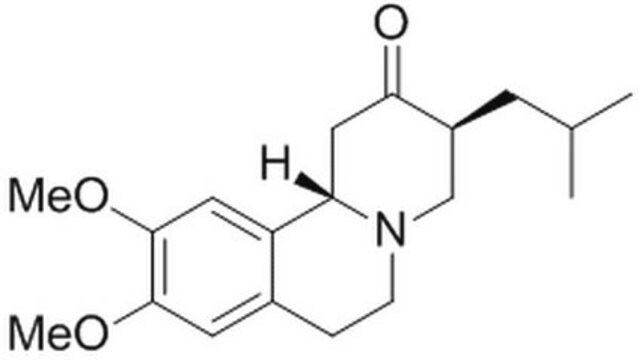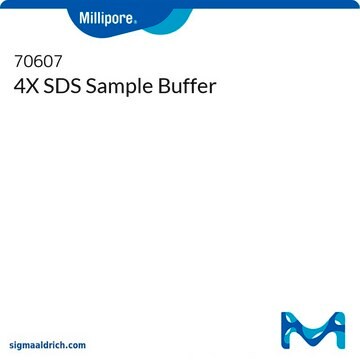T2952
Tetrabenazine
≥98% (HPLC), solid
Synonym(s):
9,10-Dimethoxy-1,3,4,6,7,11b-hexahydro-3-isobutyl-(rel 3R,11bR)-2H-benzo[a]quinolizin-2-one
About This Item
Recommended Products
Assay
≥98% (HPLC)
form
solid
solubility
DMSO: >10 mg/mL
H2O: insoluble
originator
Roche
storage temp.
2-8°C
SMILES string
COc1cc2CCN3C[C@@H](CC(C)C)C(=O)CC3c2cc1OC
InChI
1S/C19H27NO3/c1-12(2)7-14-11-20-6-5-13-8-18(22-3)19(23-4)9-15(13)16(20)10-17(14)21/h8-9,12,14,16H,5-7,10-11H2,1-4H3/t14-,16-/m1/s1
InChI key
MKJIEFSOBYUXJB-GDBMZVCRSA-N
Looking for similar products? Visit Product Comparison Guide
Application
Biochem/physiol Actions
Features and Benefits
Preparation Note
Signal Word
Warning
Hazard Statements
Precautionary Statements
Hazard Classifications
Acute Tox. 4 Oral
Storage Class Code
11 - Combustible Solids
WGK
WGK 3
Flash Point(F)
Not applicable
Flash Point(C)
Not applicable
Personal Protective Equipment
Certificates of Analysis (COA)
Search for Certificates of Analysis (COA) by entering the products Lot/Batch Number. Lot and Batch Numbers can be found on a product’s label following the words ‘Lot’ or ‘Batch’.
Already Own This Product?
Find documentation for the products that you have recently purchased in the Document Library.
Our team of scientists has experience in all areas of research including Life Science, Material Science, Chemical Synthesis, Chromatography, Analytical and many others.
Contact Technical Service







